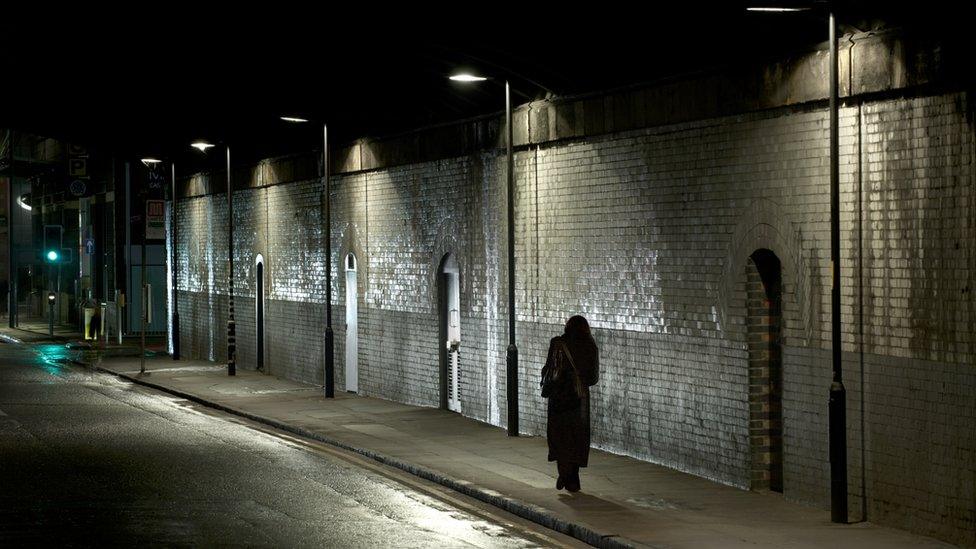Women's safety: Sabina Nessa case highlights concerns
- Published
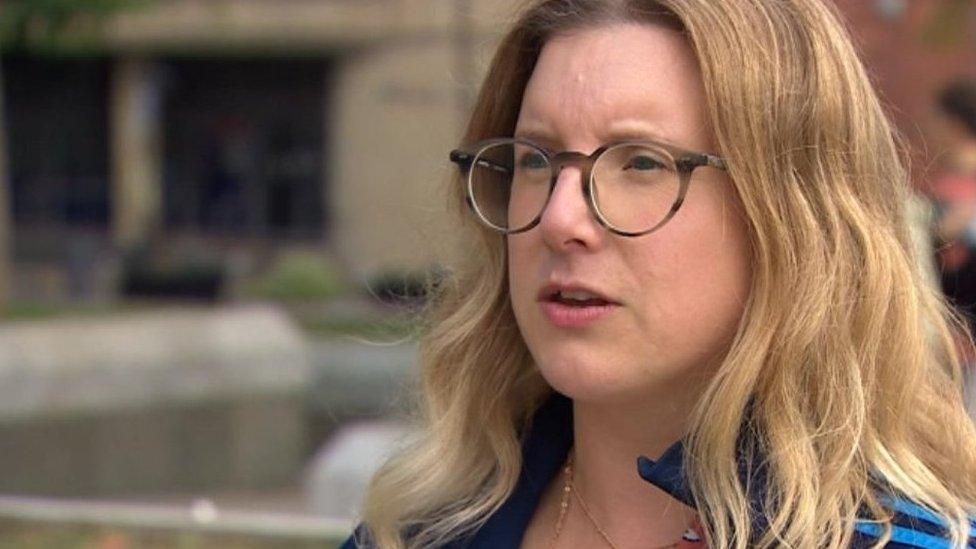
Sarah Priestly-Turner said the actions of men can help ease women's fears
Women campaigning to improve female safety have urged men to call out their friends' inappropriate behaviour.
Research by a Leeds-based group found women in the city felt unsafe after dark, with men's behaviour given as the main reason.
This included being followed, receiving unwanted suggestive comments, and physical assaults.
Emily Turner, of Women Friendly Leeds (WFL) said: "We need our men as allies."
"Don't do it, call it out in others and if it happens to you, report it," she said.
The group conducted a survey of 1,371 women from Leeds, and two-thirds of respondents felt unsafe when out and about after dark.
Of those who answered the poll, 97% believed being a woman affected their personal safety, and 81% identified men's behaviour towards them as a major reason for feeling unsafe.
The group said "harassment and abuse, leering, catcalling and unwanted touching" had been experienced by most women it surveyed.
"If these behaviours are widely accepted as OK, then it is a short step to even more serious violence and abuse," it concluded.
Women's safety has been a high-profile issue since the murder of Sarah Everard, who was abducted and killed while walking in London six months ago.
It has been thrust into the spotlight once again after teacher Sabina Nessa, last seen alive as she went to meet a friend for a drink, was found dead on Saturday.
Other women have shared their experiences of feeling under threat while going about their daily business.
Small actions, huge difference
Sarah Priestly-Turner said she went out to buy milk on a dark evening and was "constantly aware" of her route, and that a man was walking behind her.
"It was quite a marked feeling in that I thought: 'I'm not going to walk that way, I'm going to walk this way'.
"It's that constant awareness, and it is so tiring having to think about your actions to try and protect yourself," she said.
"On that evening, a bloke who was walking behind me actually walked onto the other side of the road which was amazing. It was one of those moments where I felt slightly less worried, something lifted.
"It's small actions like that that make a huge difference."
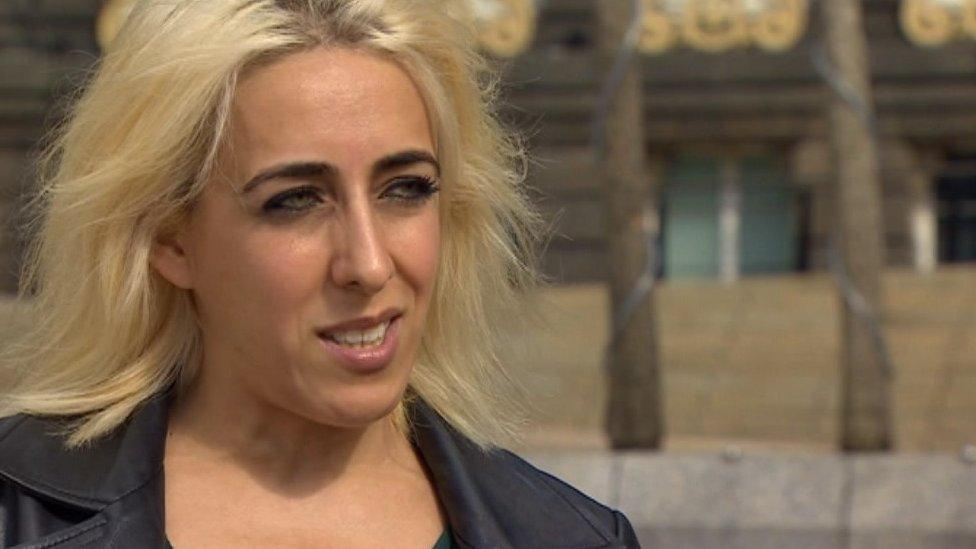
Miranda Rich has spoken about how her drink was spiked on a night out
Miranda Rich, also from Leeds, spoke about how her drink was spiked in a bar when she was out with friends.
"It was my first drink," she said. "I was really out of my mind, and I said to my friend: 'You need to call an ambulance immediately'. I felt like I was going to collapse.
"I went outside and proceeded to just go unconscious for a very long time.
"I don't really remember much of that night, it was a deeply traumatic experience. I really felt like I was going to die."
"I was told by the hospital to report it to the police but they were straight and said to me it was very unlikely something would happen."
Responding to the survey, West Yorkshire Mayor Tracy Brabin said: "I am dedicated to addressing the issue of women and girl's safety and that all women and girls have the right to both be and feel safe, in their homes, the community, on public transport and in the city centre, regardless of time, location or who they are with."

Follow BBC Yorkshire on Facebook, external, Twitter, external and Instagram, external. Send your story ideas to yorkslincs.news@bbc.co.uk, external.
Related topics
- Published24 September 2021
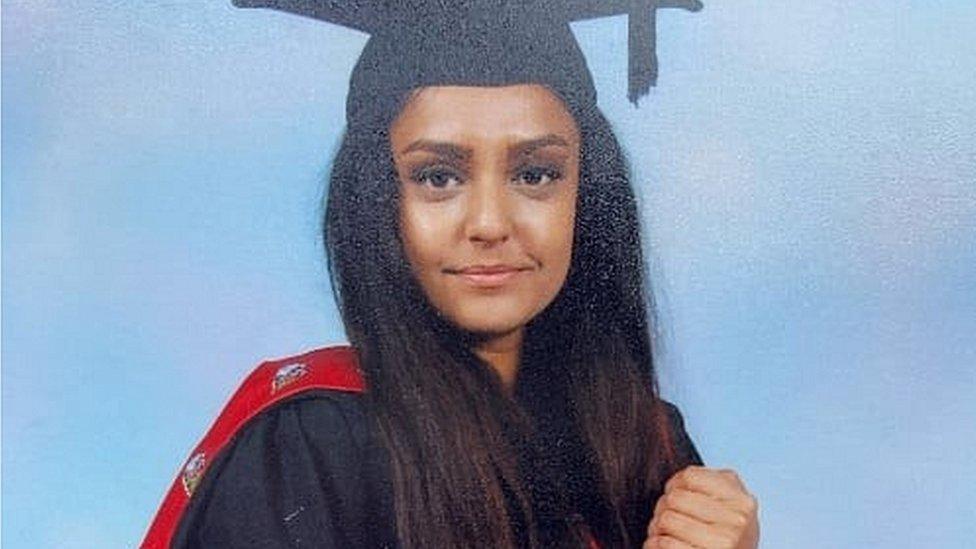
- Published24 September 2021
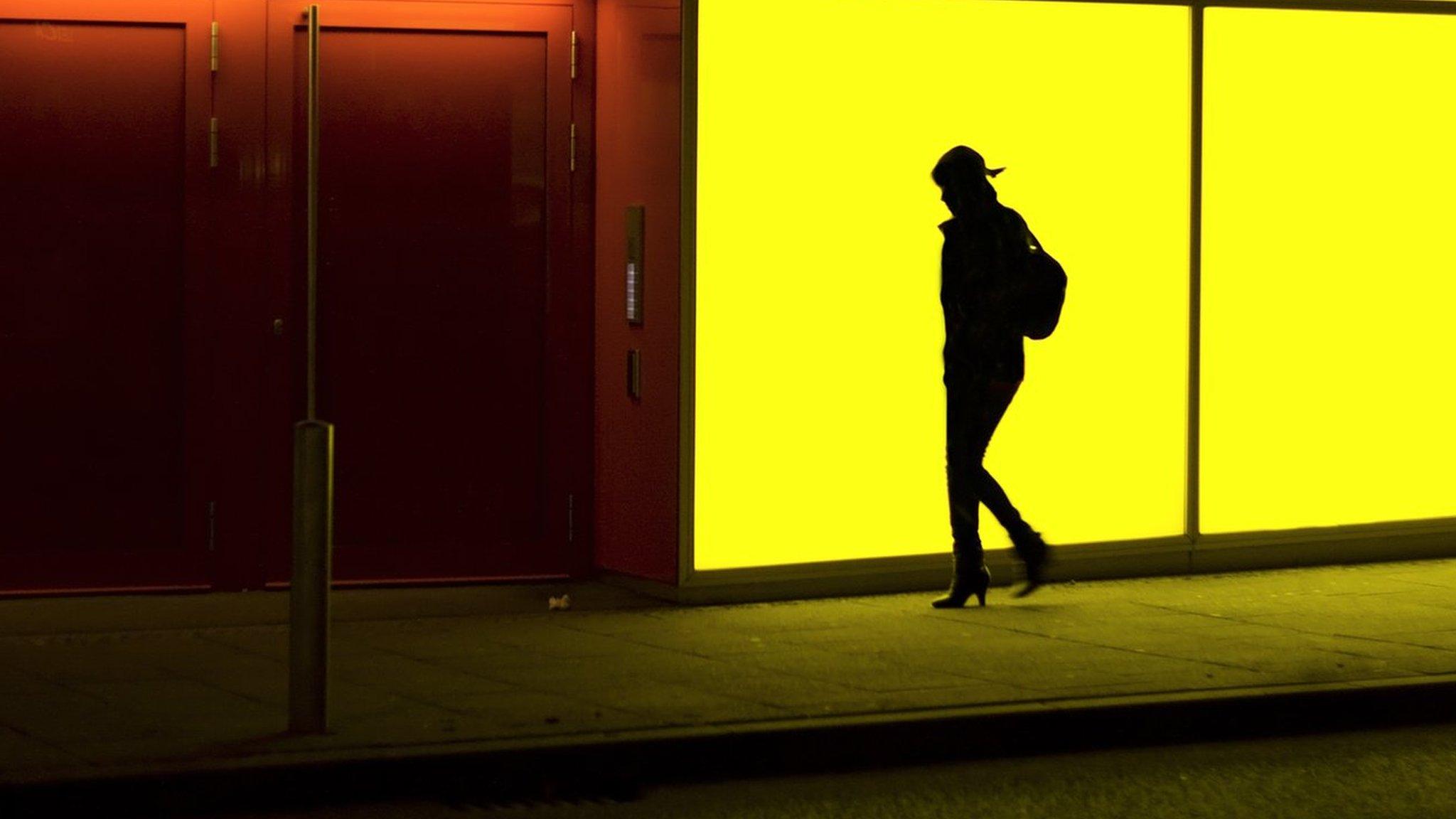
- Published16 March 2021
